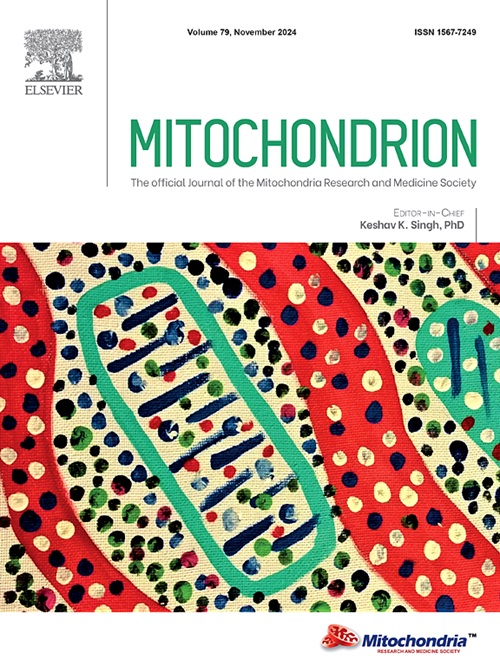十氯酮(酮)诱导人心脏组织线粒体功能障碍。
IF 4.5
3区 生物学
Q2 CELL BIOLOGY
引用次数: 0
摘要
十氯酮暴露于人体内与前列腺癌发病率增加、生育能力受损和胎儿/围产期异常有关,而啮齿类动物实验研究表明,十氯酮可以抑制镁三磷酸腺苷酶,但对其在人体内的线粒体毒性知之甚少。我们的目的是测试十氯酮是否会在离体心脏制剂中诱导人心肌细胞线粒体功能障碍。在体外循环插管期间,从接受程序性心脏手术进行冠状动脉搭桥的患者中获得人类心房组织活检。心脏制剂与载体或十氯酮(5 nM和50 nM)孵育24 小时,然后进行线粒体高分辨率氧成像研究。与对照组相比,浓度为5 nM和50 nM的十氯酮心脏暴露使线粒体呼吸速率受损。浓度为5 nM和50 nM的十氯酮同样增加了状态2呼吸速率和最大呼吸量,而状态3 (ADP)呼吸速率没有变化,这表明线粒体氧化磷酸化和电子通过呼吸链复合物传递之间的解耦合。总之,我们的研究表明,临床相关浓度的十氯酮会损害线粒体功能,导致解偶联,从而可能引起异常的心肌细胞反应,包括异常的钙处理和氧化应激。本文章由计算机程序翻译,如有差异,请以英文原文为准。
Chlordecone (kepone) induces mitochondrial dysfunction in human cardiac tissue
Chlordecone exposure in humans has been associated with increased incidence of prostate cancer, impaired fertility, and fetal/perinatal abnormalities while experiment rodent studies suggest that chlordecone can inhibit magnesium-ATPase, little is known about its mitochondrial toxicity in humans. Our objective was to test whether chlordecone would induce mitochondrial dysfunction in human cardiac cells in ex vivo heart preparations. Biopsies of human atrial tissue were obtained during cannulation for cardiopulmonary bypass from patients who were undergoing programmed cardiac surgery for coronary artery bypass. Cardiac preparations were incubated with vehicle or chlordecone (5 nM and 50 nM) for 24 hr followed by mitochondrial high-resolution oxygraphy studies. Compared with vehicle, chlordecone cardiac exposure at the concentrations of 5 nM and 50 nM impaired mitochondrial respiratory rates. Chlordecone concentrations of 5 nM and 50 nM similarly increased state 2 respiration rate and maximal respiration capacity with no change of state 3 (ADP) respiration rate, which suggests the uncoupling of between mitochondrial oxidative phosphorylation and electron transport through the respiratory chain complexes. In conclusion, our study suggests that chlordecone at clinically relevant concentration impairs mitochondrial function leading to uncoupling, which may induce abnormal cardiac cell responses, including aberrant calcium handling and oxidative stress.
求助全文
通过发布文献求助,成功后即可免费获取论文全文。
去求助
来源期刊

Mitochondrion
生物-细胞生物学
CiteScore
9.40
自引率
4.50%
发文量
86
审稿时长
13.6 weeks
期刊介绍:
Mitochondrion is a definitive, high profile, peer-reviewed international research journal. The scope of Mitochondrion is broad, reporting on basic science of mitochondria from all organisms and from basic research to pathology and clinical aspects of mitochondrial diseases. The journal welcomes original contributions from investigators working in diverse sub-disciplines such as evolution, biophysics, biochemistry, molecular and cell biology, genetics, pharmacology, toxicology, forensic science, programmed cell death, aging, cancer and clinical features of mitochondrial diseases.
 求助内容:
求助内容: 应助结果提醒方式:
应助结果提醒方式:


